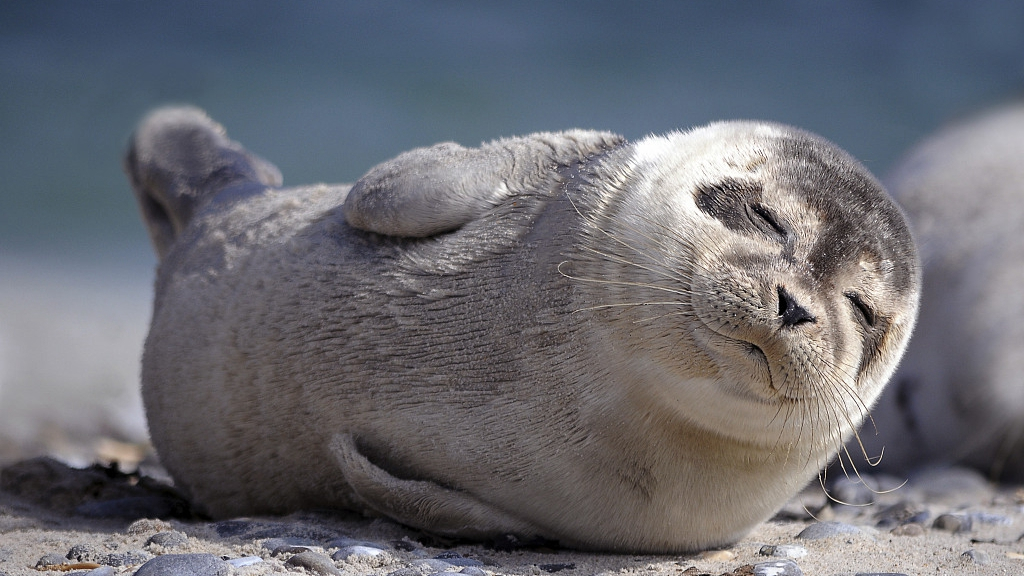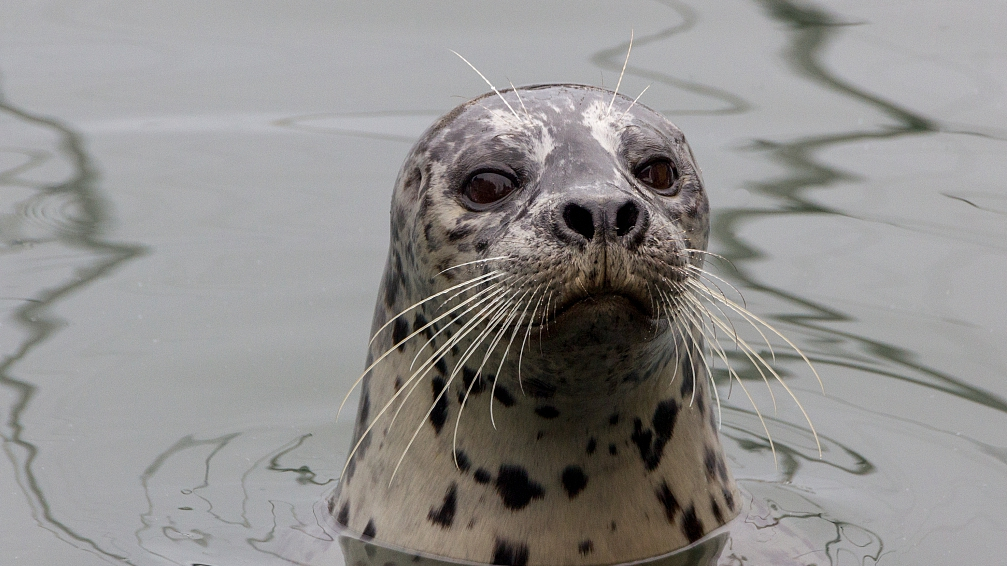
Animal
16:07, 27-Feb-2019
Life below water: Spotted seals deserve better protection in China
Updated
11:48, 03-Mar-2019
CGTN

When conservationists heard the news that 100 seal cubs were poached in northeast China, they were shocked to the bone.
The number of captured seals accounted for almost half of their annual birth rate. Although steps were taken to rescue the stolen cubs, 38 died of malnutrition. 10 suspects were arrested and the local police have issued a warrant for the remaining two who are still at large.
Spotted seals are the only flipper-footed breed in Chinese waters. Every November, seals start to swim to Liaodong Bay to prepare for breeding which happens in January and February. Scientists believe the reason these animals come all the way to this area is because of the abundant food and tranquil waters.

A spotted seal emerging from the water. /VCG Photo
A spotted seal emerging from the water. /VCG Photo
China has put spotted seals under second class protection due to its declining population. But this doesn't stop poachers, as lucrative profits can be made from selling their fur or reproductive organs.
The items can go for as much as 500,000 yuan, with a large reproductive organ going for 30,000 yuan.
Their cuteness also makes them a target for poachers looking to sell to aquariums and animal entertainment businesses.
Apart from poaching, shrinking habitats and climate change have also contributed to their drop in population. In the 1930s there were an estimated 8,000 seals in Liadong Bay, compared to just 2,000 now.
More conservationists and experts have begun to advocate for upgrading the spotted seal's protection level to keep these animals for the next generation.
Life below water
World Wildlife Day was established by the United Nations (UN) in 2013 to raise people's awareness of protecting wild animals and plants on Earth. This year on March 3, the theme is “Life below water: For people and the planet.” In this series, we're presenting the diverse marine lives in China, focusing on the endangered ones such as the Yangtze finless porpoise and spotted seals that are in need of protection by the government, NGOs and individuals.
(Cover photo via VCG Photo)
(If you want to contribute and have specific expertise, please contact us at nature@cgtn.com)

SITEMAP
Copyright © 2018 CGTN. Beijing ICP prepared NO.16065310-3
Copyright © 2018 CGTN. Beijing ICP prepared NO.16065310-3